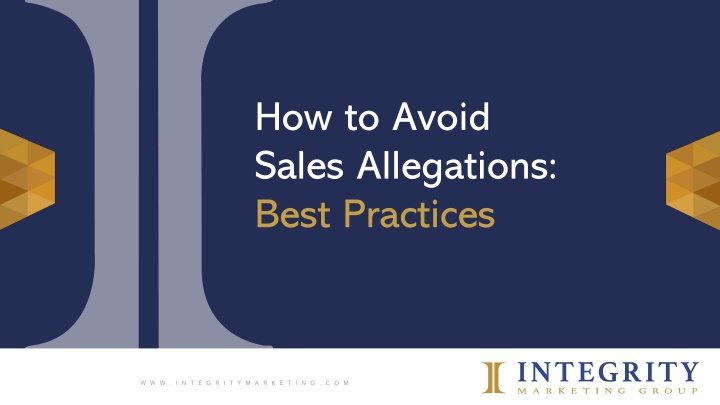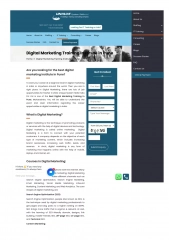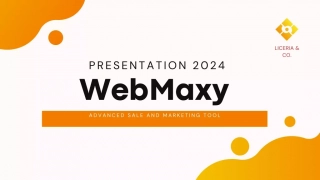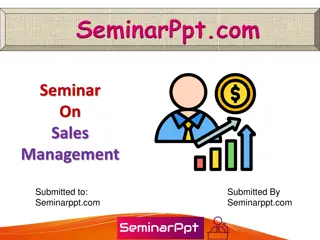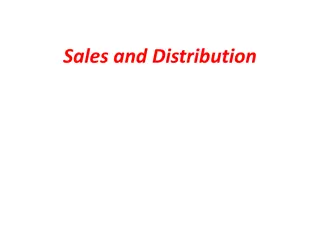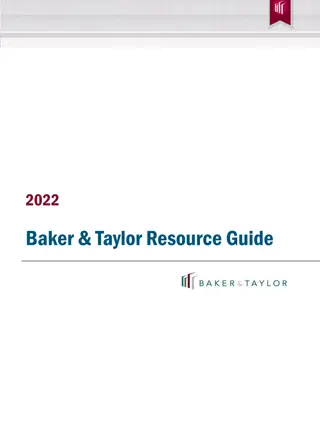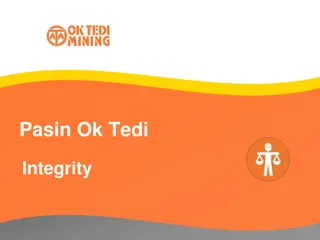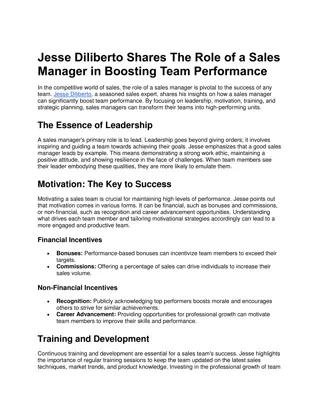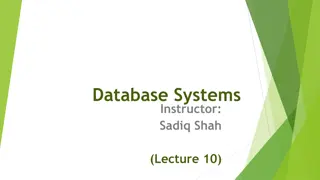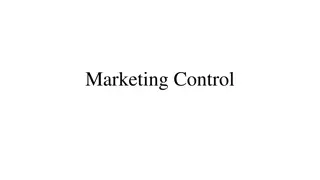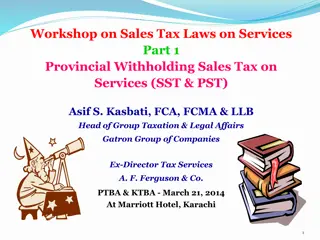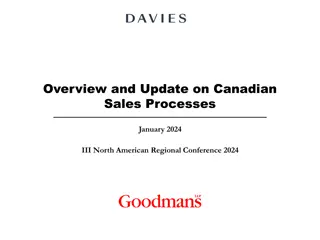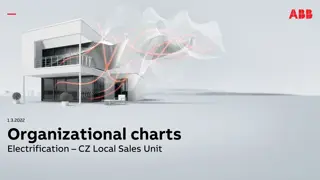Avoid Sales Allegations: Best Practices in Integrity Marketing
Navigate through types of sales allegations, outcomes, common allegation families, and detailed knowledge practices to avoid sales allegations in marketing. Understand the consequences and best practices in sales integrity.
Download Presentation

Please find below an Image/Link to download the presentation.
The content on the website is provided AS IS for your information and personal use only. It may not be sold, licensed, or shared on other websites without obtaining consent from the author.If you encounter any issues during the download, it is possible that the publisher has removed the file from their server.
You are allowed to download the files provided on this website for personal or commercial use, subject to the condition that they are used lawfully. All files are the property of their respective owners.
The content on the website is provided AS IS for your information and personal use only. It may not be sold, licensed, or shared on other websites without obtaining consent from the author.
E N D
Presentation Transcript
How to Avoid Sales Allegations: Best Practices W W W . I N T E G R I T Y M A R K E T I N G . C O M
Introduction to Sales Allegations 2
Types of allegations Carrier Founded typically have a 5-7 business day response timeframe CTM or Call to Medicare typically have a 2-3 business day response timeframe Outbound Verification Calls Investigated by an internal department within the carrier Customer Service Calls Findings are reported to CMS for further investigation Inbound Calls 3
Outcomes Unfounded: Retraining Coaching Probation Founded: Retraining Coaching Probation Suspension Termination Reported to state DOI 4
Most common allegation families Plan and Product Knowledge Allegations (i.e. incorrect or incomplete benefit information shared with beneficiary) Prohibited Activities (i.e. Cold Calling) Risk to Beneficiary & Enrollment Allegations Operational Behavior Allegations Lead & Contact Issues (i.e. non-compliant lead pieces) Point of Sale Allegations (i.e. incorrect plan selected on application) 6
Plan and product knowledge Inaccurate benefit or coverage information Inaccurate Coordination of Benefits (COB) - Dual Eligible Inaccurate COB Medicare Advantage/Medicare Supplement Inaccurate co-pay/co-insurance information Inaccurate effective date and/or enrollment code Inaccurate Private Fee-for-Service (PFFS) Deeming Information 7
Plan and product knowledge Inaccurate plan description Inaccurate provider network information (products other than PFFS) Member thought the plan was a Medicare Supplement plan Non-PFFS Medicare Advantage (MA) only/stand-alone Prescription Drug Plan (PDP) enrollment 8
Plan and product knowledge best practices Reference the Summary of Benefits for the plan when discussing benefits or coverage Use all carrier provided resources available to you to find accurate information related to LIS Be sure that you understand the beneficiary s situation and refer to plan materials so that you correctly identify and explain how the plan will affect their specific situation Remember that consumers may not hold a Medicare Advantage plan along with a Medicare Supplemental policy 9
Plan and product knowledge best practices Make sure you use the correct election period if you are in doubt, call the carrier Make sure that the beneficiary understands the effective date for their plan Make sure you read (and the client understands) the PFFS disclaimer when presenting PFFS plans Keep your Summary of Benefits on-hand because it is your best resource to reference information specific to the plan Clearly explain the difference between an MA and Medicare Supplement plan and make sure the beneficiary understands what they are selecting 10
Plan and product knowledge best practices Remember that co-payments may be different for each plan in an area, just as formularies are not identical Never use a paper version of a Provider Directory they can change frequently Remember - Medicare Advantage plans that do not include a Prescription Drug Plan and are not Private-fee-for-service plans may not be combined with a stand-alone Prescription Drug Plan 11
Prohibited activities Agent signer/presenter discrepancy Compensation to induce referrals or enrollment Non-compliant cross-selling Kickbacks Negative or misleading competitor statements Protected Health Information (PHI) violation misuse of PHI Violation of Nominal Gift rule 12
Prohibited activities Confirm you are appropriately licensed, appointed and certified Never offer compensation for referrals or enrollments Don t market or sell non-health related products during an MA, Medicare Supplement or PDP sales call (e.g., Community Meeting) or personal/individual marketing appointment (e.g., in-home) Never enter an arrangement that includes offering or providing compensation to induce referrals or enrollment 13
Prohibited activities best practices Refrain from making negative statements, especially ones that are misleading Handle all PHI securely Do not steer consumers into a specific plan 14
Risk to beneficiary & enrollment Deceitful signature request Enrollee does not recall enrolling Enrollee was unable to comprehend and/or sign application cultural or language limitations Enrollee unable to comprehend and/or sign application - mental competency Forgery Intimidating Sales Tactics 15
Risk to beneficiary & Enrollment best practices Never mislead the beneficiary with regards to what they are signing make sure they fully understand into which plan they are enrolling Consider providing receipt of application to the beneficiary Look for signs of cognitive issues Verify with the beneficiary if they have a POA 16
Operational behavior Agent failed to submit the application Unprofessional personal appearance Inappropriate broker behavior Misuse of company logos Noncompliant Sale Unapproved telemarketing scripts Unauthorized marketing materials/website issue 17
Operational behavior best practices Always represent yourself in a professional manner Refrain from sharing distasteful joke or using profanity during a meeting with consumers Use only carrier approved materials containing company logos and names Confirm you are licensed, appointed and certified prior to marketing plans 18
Lead & contact issues Cold Calling Discrimination/Cherry Picking Do-Not-Call list violation (DNC) Misleading or inappropriate agent title Misrepresentation as a representative of a specific carrier Misrepresentation as representative of Medicare/Social Security/Federal Government Not complying with 48 hour Cooling Off period Unsolicited contact 19
Lead & contact issues best practices Always obtain and document PTC prior to making direct contact with the consumer and renew PTC if making on-going contact Refrain from target marketing to consumers in specific demographics such as those only from a higher income area, or by virtue of their apparent health status Check all leads against the DNC list Use CMS approved titles only i.e. Licensed Sales Representative or Sales Agent Never lead a consumer to believe that you are in any way representing a government agency or Medicare 20
Lead & contact issues best practices Always obtain a SOA form prior to any individual sales discussion with a consumer, whether or not they are already a member and whether or not they still have you as their Agent of Record Avoid unsolicited contact of any kind If you wish to create your own generic marketing materials, make sure those meet the MMGs 21
Point of sale Enrollment application quality Holding an enrollment application Incomplete information regarding consumer cancelation/withdrawal/disenrollment Member does not receive agent contact or customer service information Lack of follow-through for request to disenroll Failure to provide appropriate enrollment materials Unsuitable plan enrollment 22
Point of sale best practices Always double-check to make sure applications are completed correctly Clearly explain to the beneficiary how to withdraw an enrollment application or disenroll from the plan Provide all beneficiaries with a business card or appropriate contact information Never mislead a consumer Strive to help consumers find the best plan for their situation 23
Telephonic enrollments Speeding through sales script Not pausing to ask if the beneficiary understands what is being reviewed Failure to follow approved script Mistyping of information on enrollment portal Failing to provide direct contact information Failure to follow up Ensuring client does not have a POA 24
Telephonic enrollments Slowly read all scripts and make sure you pause to ensure the client does not have any questions Learn to recognize verbal cues that may indicate confusion or concern or even when the client may not be fully paying attention Review all information on the script, including plan selection prior to submitting the enrollment Follow the 3 points of contact rule immediately following enrollment including status notification, ensuring they received their ID card, and ensuring they understand how to use their plan 25
Thank You W W W . I N T E G R I T Y M A R K E T I N G . C O M
